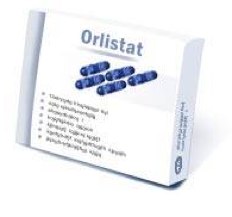 Liraglutide is a drug that is self-administered, via injection, into the stomach. It’s been available as a treatment for diabetes since 2009, but has recently been approved for use as a weight loss aid, albeit at a slightly higher dose. When used as a treatment for diabetes, a liraglutide dose of 1.8 mg per day is required, but those who wish to use Liraglutide for weight loss will need to inject a 3mg dosage into their stomachs each day.
Liraglutide is a drug that is self-administered, via injection, into the stomach. It’s been available as a treatment for diabetes since 2009, but has recently been approved for use as a weight loss aid, albeit at a slightly higher dose. When used as a treatment for diabetes, a liraglutide dose of 1.8 mg per day is required, but those who wish to use Liraglutide for weight loss will need to inject a 3mg dosage into their stomachs each day.
Liraglutide for Weight Loss
Table of Contents
Liraglutide assists weight loss by providing appetite suppression.
 Appetite suppressants are designed to control the appetite and quell the desire for food. The human body only requires a limited amount of calories each day (around 2,500 for men, and 2,000 for women) so it is easy to over eat and flood the body with an excess of calories that are then stored as fat. Ensuring the body receives a deficit of calories will have the opposite effect because whenever the body is starved of energy-providing calories it is forced to burn its excess fat as fuel. Any form of appetite suppressant that can ensure such a condition can be a powerful aid to weight loss and a number of studies show Liraglutide has such a power and is better than most competing (legal) drugs.
Appetite suppressants are designed to control the appetite and quell the desire for food. The human body only requires a limited amount of calories each day (around 2,500 for men, and 2,000 for women) so it is easy to over eat and flood the body with an excess of calories that are then stored as fat. Ensuring the body receives a deficit of calories will have the opposite effect because whenever the body is starved of energy-providing calories it is forced to burn its excess fat as fuel. Any form of appetite suppressant that can ensure such a condition can be a powerful aid to weight loss and a number of studies show Liraglutide has such a power and is better than most competing (legal) drugs.
Liraglutide v Orlistat
 At the moment British doctors can prescribe an orally taken fat blocker called Orlistat, but they usually only prescribe it for the seriously obese. It seems likely that similar restraints will apply to liraglutide, but the drug is twice the price of Orlistat so it is possible British health chiefs may decide it is too expensive to be a viable option. When it comes to weight loss though, there is no comparison. Tests show liraglutide can provide double the weight loss results of Orlistat.
At the moment British doctors can prescribe an orally taken fat blocker called Orlistat, but they usually only prescribe it for the seriously obese. It seems likely that similar restraints will apply to liraglutide, but the drug is twice the price of Orlistat so it is possible British health chiefs may decide it is too expensive to be a viable option. When it comes to weight loss though, there is no comparison. Tests show liraglutide can provide double the weight loss results of Orlistat.
Liraglutide can also offer several bonus benefits that Orlistat cannot:
- Raises the level of good cholesterol
- Lowers blood pressure
- Helps prevent diabetes
- Enhances the mood
Manufacture and History
Liraglutide is manufactured in Denmark, by Novo Nordisk, and marketed as a weight loss aid under the brand name Saxenda. Although it was approved as a treatment for diabetes a number of years ago (marketed as Victoza) it has only recently been approved for weight loss. The FDA approved its use in the USA in December 2014, and the European Medicines Agency approved its use in Europe in January 2015.
 The Daily Mail not shy when it comes to sensationalism were quick to jump on the story Miracle Diet Jab that could help you lose weight costing just £2.
The Daily Mail not shy when it comes to sensationalism were quick to jump on the story Miracle Diet Jab that could help you lose weight costing just £2.
The story basically highlighted and underlines the benefits of using the injection and anticipated its arrival onto the marketplace.
Reading some of the comments from its (Daily Mail) users some are quick to point out that Liraglutide is already being used in some areas of the UK as a method for lowering blood sugar.
How to Use Liraglutide
Liraglutide comes in a pen-type injection device similar to those used by diabetics, and one (3mg) injection is required each day. This must delivered to the stomach area and should be injected each morning before breakfast.
How Liraglutide Works
According to Novo Nordisk, liraglutide can help the user reduce their daily food intake by around 10%. This is apparently achieved because the drug behaves in a similar manner to a naturally-occurring growth hormone that is automatically released when food is eaten and subsequently signals the brain the stomach is full. By mimicking this hormone liraglutide causes the signal to be sent in error and tricks the brain into suppressing the desire for food. This is, of course, on top of the drug’s ability to regulate blood glucose levels, which make it such an invaluable aid for diabetics.
Scientific Studies
A number of studies support Liraglutide’s abilities as a weight loss provider. In one 56-week clinical trial obese volunteers (male and female) were given 3mg of Liraglutide each day (in conjunction with a healthy diet and exercise) and a weight loss of 8% from baseline was recorded. The placebo group showed a weight loss of just 2.6% from baseline. The Liraglutide group also showed a reduction in waist circumference of 8.19 cm, compared to 3.94 cm (the placebo group). The researchers also noted favourable differences in blood glucose levels, lipid levels, and blood pressure.
References and studies:
https://www.nice.org.uk/guidance/ta203
http://www.nlm.nih.gov/medlineplus/druginfo/meds/a611003.html
http://www.drugs.com/cdi/liraglutide.html
Reception
Although some experts believe drugs are unlikely to be the answer to Britain’s ever-growing problem with obesity, there has, in the main, been a good response to liraglutide.
Professor Mike Lean (Glasgow University) states most patients respond “amazingly well” to the drug and states liraglutide has helped some of his patients to leave the wheelchairs their former obesity had confined them to.
The former president of the UK Association for the Study of Obesity, Professor Jason Halford, is equally praising of the drug, stating: “The real benefit of it is that it is targeting appetite. It strengthens the effects of satiety.”
Potential for Side Effects
Side effects cannot be ruled out, but are unlikely to be severe. The most commonly reported side effects are nausea and/or diarrhoea, but a few liraglutide users have experienced pancreatitis and gall bladder problems.
Alternatives
 There have been many “miracle weight loss’ product over the last decade arguably none have been as successful as PhenQ.
There have been many “miracle weight loss’ product over the last decade arguably none have been as successful as PhenQ.
PhenQ is manufactured by private enterprise and not by a major pharmaceutical company – it is available to buy without prescription in most countries.
Leave a Reply